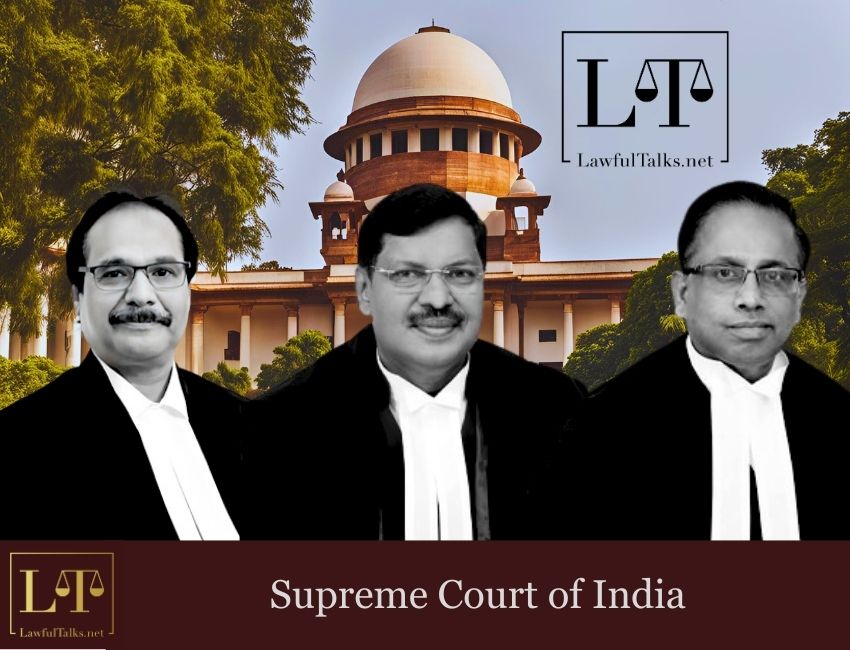Allahabad HC Sets Aside Afzal Ansari's Conviction, Allows Him to Continue as MP

Judges Stress on Holistic Approach: When reviewing the death penalty, considerations such as the offender's youth, family history, and socio-economic status must be taken into account.

On September 12, 2024, the Supreme Court bench comprising Justice B.R. Gavai, Justice Prashant Kumar Mishra, and Justice K.V. Viswanathan noted that when commuting the death penalty sentence to fixed imprisonment without remission for a period of 20 years', additional mitigating circumstances will also be taken into consideration, including the convict's age (22 years) at the time of the offence, the possibility of reformation, and conduct and behaviour in the prison.
The case included the Appellant convicted for rape and culpable homicide of a juvenile, who had been given the death penalty. The Sessions Court found the Appellant-Convict guilty under sections 450 (House-trespass in order to commit an offence punishable with imprisonment for life) , 376(2)(i), 376D, 376A, and 302 r/w 34 of the Indian Penal Code, 1860 (also known as the "IPC") and Section 5(g)/6 of the Protection of Children from Sexual Offenses Act, 2012 (also known as the "POCSO") and convicted the Appellant-Convict to Death sentence. The High Court upheld the death sentence. Thereafter, the Appellant-Convict approached the Supreme Court through an Appeal.
The Appellant-Convict's counsel submitted that 1) the present case relied majorly on the three dying declarations, which are inconsistent and additional improvements were made in the same; 2) that the DNA Report pointed out the involvement of a third person; 3) that the present case is not a 'rarest of rare' case; 4) Mitigating circumstances should have been taken into account; 5) appellant's socioeconomic background, 6) age at the time of the offence, 7) the fact that he lost his mother and sibling when he was a little child, and 8) his actions and demeanour while incarcerated, in his opinion, make him eligible for a sentence reduction.
On the other hand, Deputy Advocate General of Madhya Pradesh, Mr. Bhupendra Pratap Singh, argued that this case would definitely fall into the "rarest of the rare" category because the appellant committed the horrible crime by taking advantage of the fact that the deceased was home alone. He argued that the appellant's age alone could not be a factor in the decision to commute the appellant's sentence.
The issues before the court were whether the case qualified as a "rarest of rare cases" to support the death penalty or if the sentence may be reduced.
After reviewing the appellant's prison psychological assessment report, the court concluded that the appellant had behaved satisfactorily while imprisoned. The reports also show that the appellant is planting plants and maintaining the temple and its surroundings, despite not being assigned any labour.
The respondent's claim that the appellant's young age precluded a commutation of the death sentence was not one that the Court was willing to adopt. Rather, while considering the appellant's young age and a number of mitigating circumstances, the court considered the appeal for a sentence commuting.
Justice Gavai observed,
“Though, Shri Singh is right that the age of the appellant at the time of commission of crime solely cannot be taken into consideration, however the age of the appellant/accused at the time of commission of crime along with other factors can certainly be taken into consideration as to whether the death penalty needs to be commuted or not.”
The court further observed, “In the present case, it is to be noted that the appellant comes from a socio-economic backward stratum of the society. As already discussed hereinabove, he lost his mother and brother at the tender age. The appellant and his family members do not have any criminal background. The appellant was of a tender age of 22 years when the aforesaid incident occurred.”.
In light of the above mentioned mitigating factors, the court noted that “It cannot be said that the appellant is a hardened criminal, who cannot be reformed. The possibility of the appellant, if given the chance of being reformed, cannot be ruled out…We, therefore, find that in the facts and circumstances of the present case, the death penalty needs to be commuted to fixed imprisonment without remission for a period of 20 years.”
As a result, the appeal was allowed to the extent that Death Penalty was commuted to fixed imprisionment without remission for a period of 20 years of Rigourous Imprisonment.
Advocate for Appellant: Mr. N. Hariharan, Senior Counsel
Advocate for State of Madhya Pradesh: Mr. Bhupendra Pratap Singh, Deputy Advocate General
Case Title: Rabbu @ Sarvesh v. The State of Madhya Pradesh, Cri. Appeal/449/2019
(For more updates, tap to join us on Whatsapp, Facebook, Instagram and LinkedIn)





























































































































































































































































































































































































































































































































































































































































































































































